Meeting 25 May 2017
C++ feature polls by Bryce Lelbach

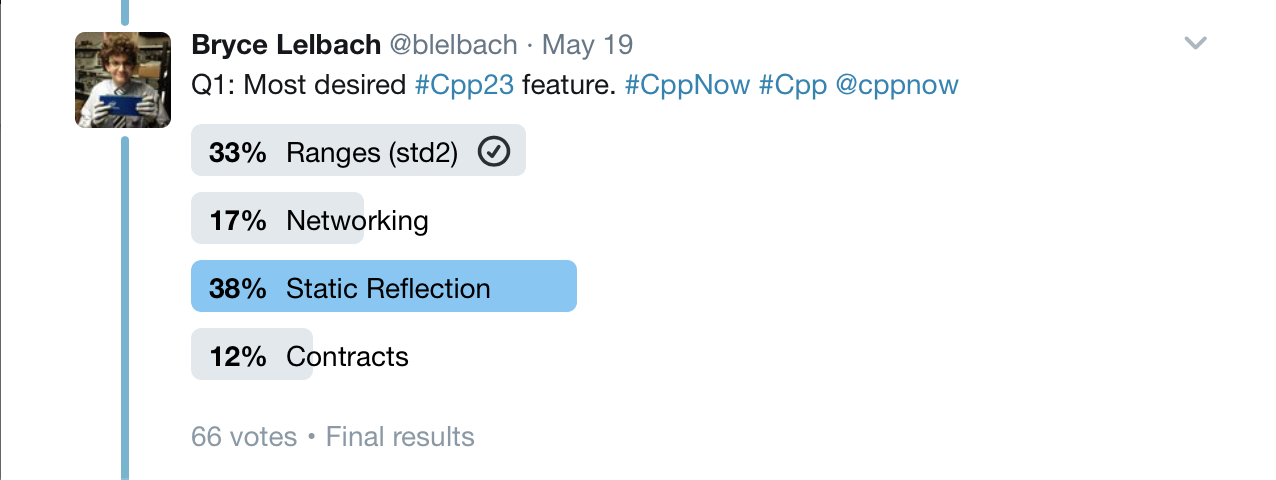
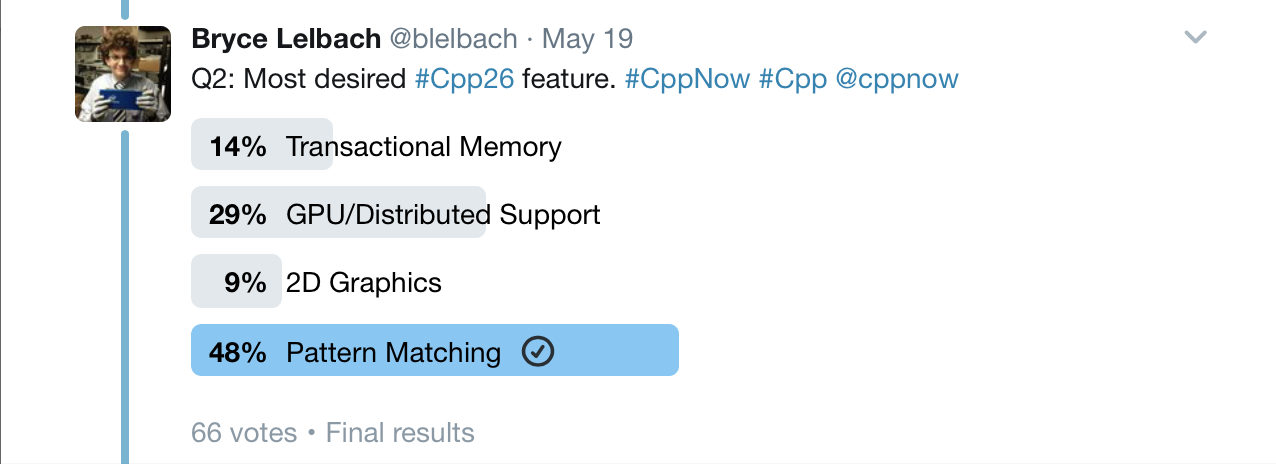
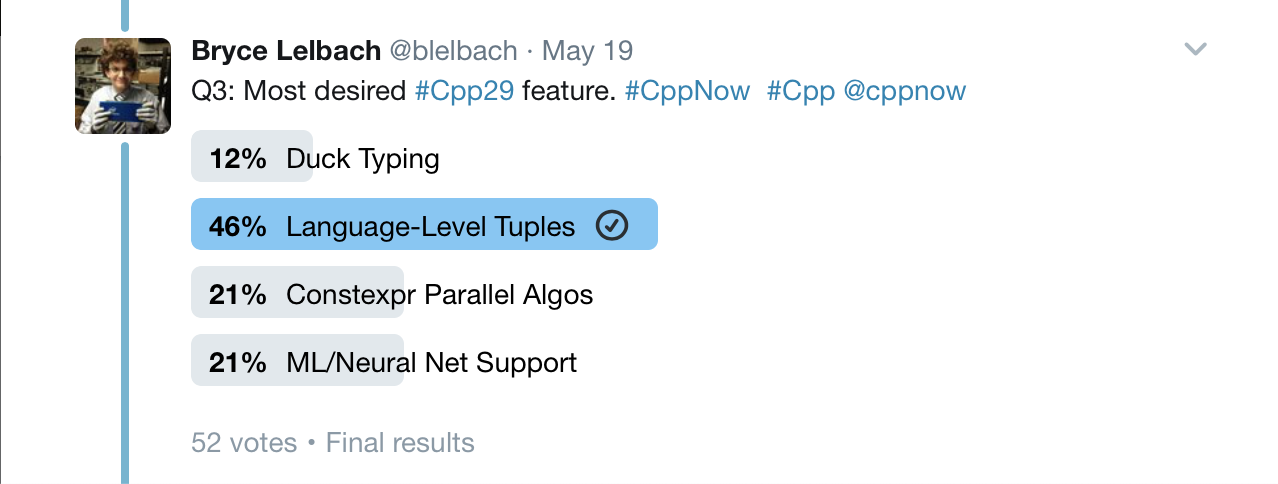
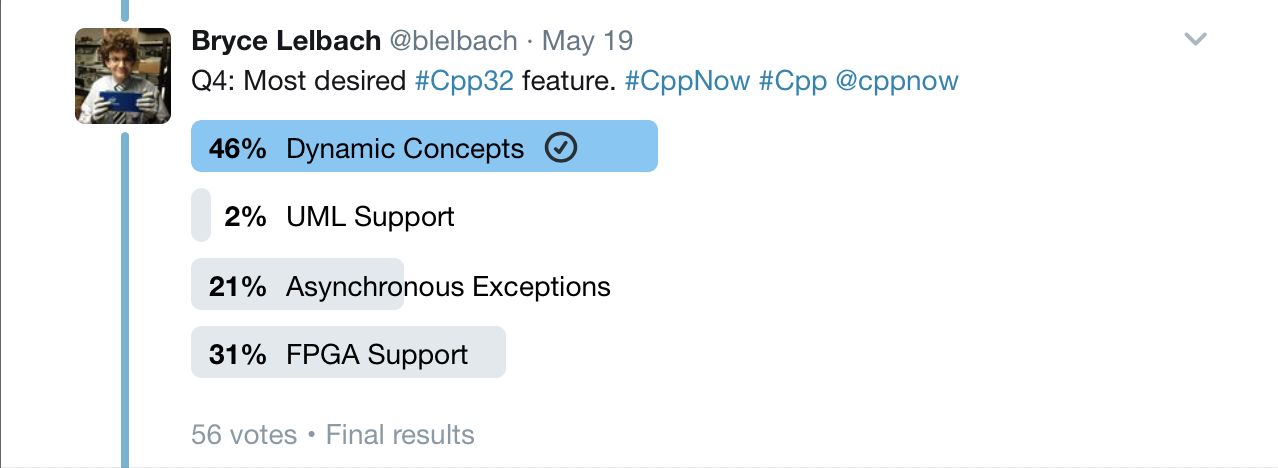
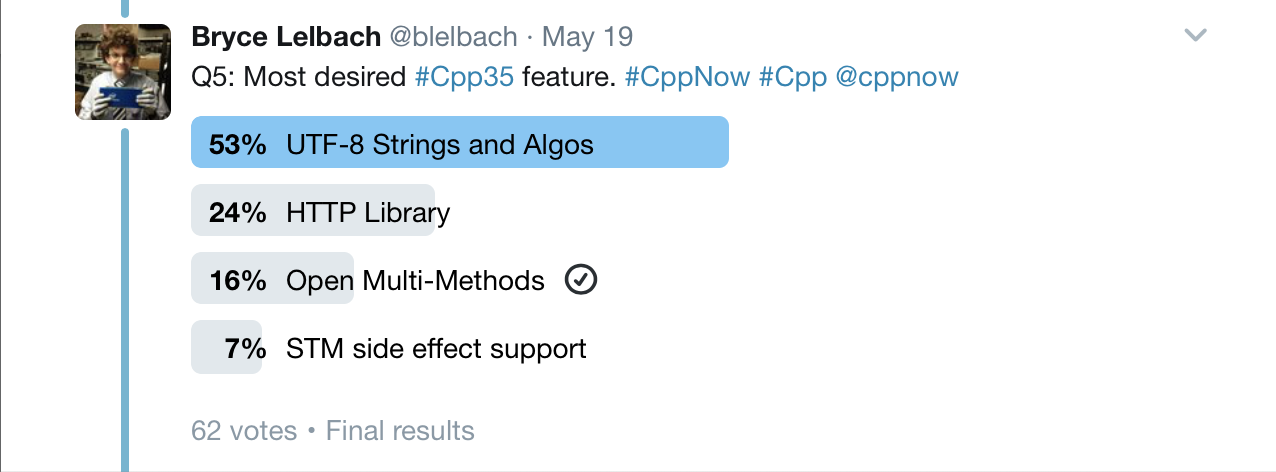
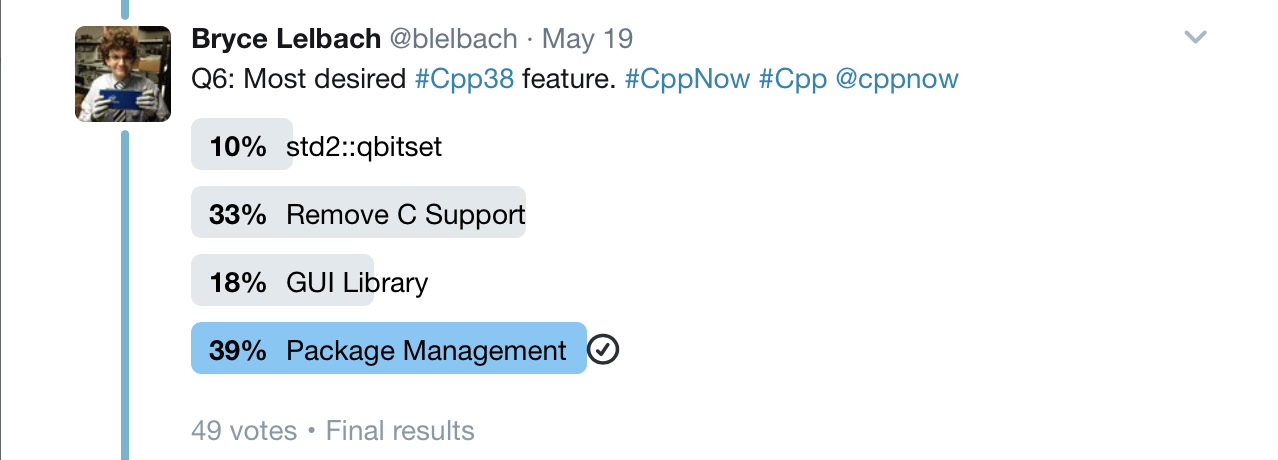
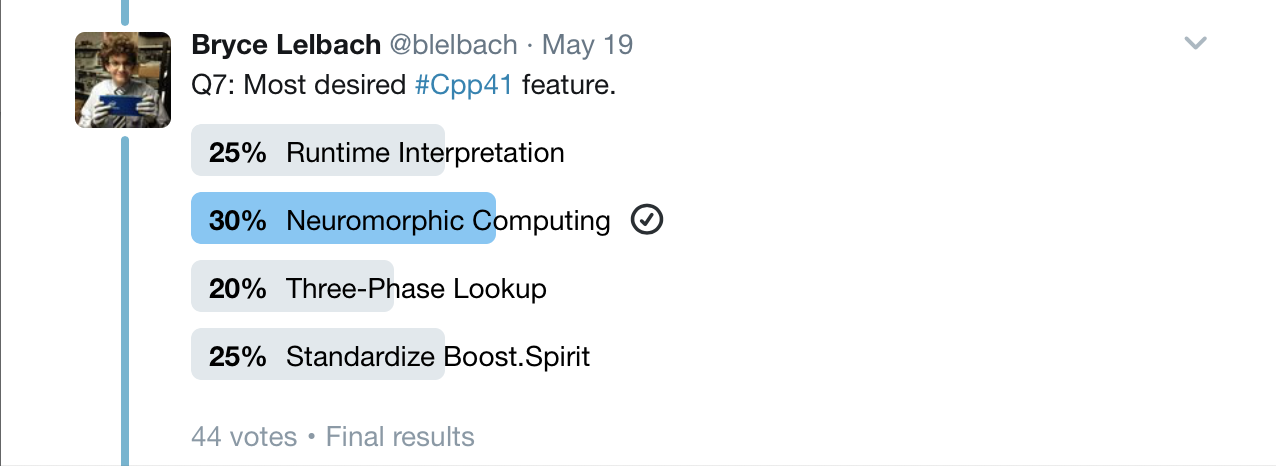
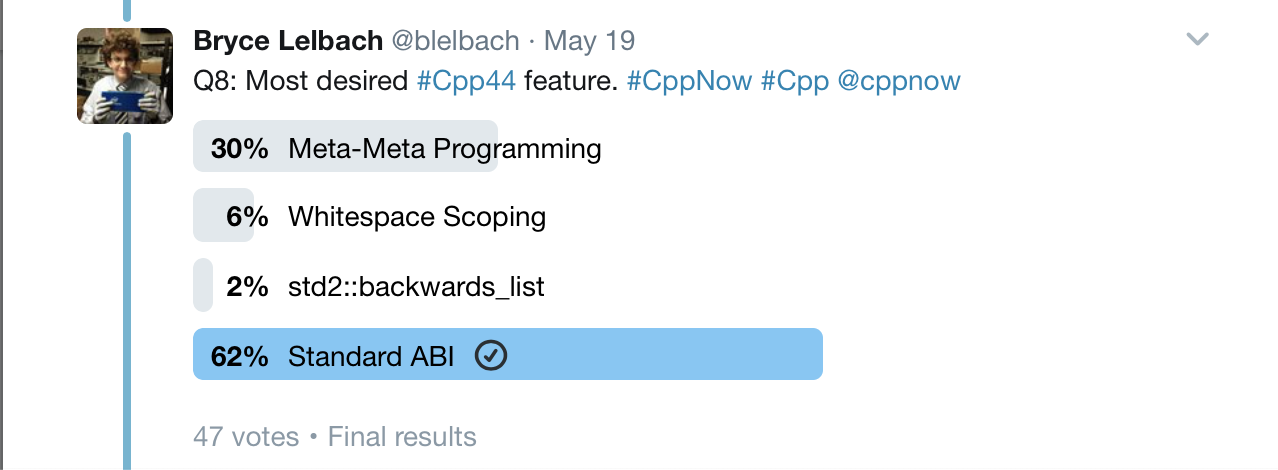
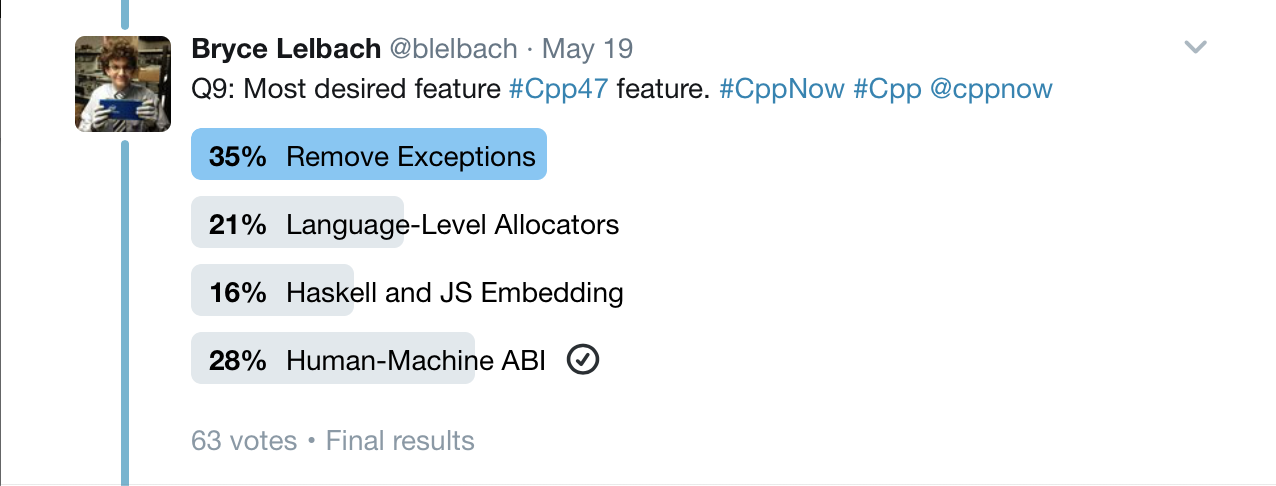

Concepts of the Upcoming Ranges TS - Eric Niebler [NWCPP]
- What is in Ranges
- What is in Ranges TS (Ranges minus the good stuff, like views or actions)
- “Based on Concepts TS which was finalised, what, 2–3 years ago?” Hah!
- Latest draft: http://wg21.link/N4651
- C++11 implementation: https://github.com/ericniebler/range-v3
- Concepts-based implementation: https://github.com/CaseyCarter/cmcstl2
- This is the beginning of STLv2 (
namespace std2) - Eric shows snippers of code that use the standard library and then converts them to use ranges — so nice!
- “Projection” is basically a map using a unary function
- SentinelsHow to convert your own algorithms to using Ranges TS
- Ranges and coroutines: https://github.com/toby-allsopp/ranges-coroutines — lets you write lazy ranges which work very well with views
- Async ranges based on coroutines ⇒ reactive programming! Does Eric know about RxCpp?
History of Time: Asynchronous C++ - Steven Simpson [ACCU 2017]
- how not to implement network server
- don’t use one thread per connection
epoll(IO completion ports): OS tells us when a connection is ready, so we don’t need threads, don’t have race conditions, and can scale well- overview of callback libraries, including Boost ASIO
- live reimplementation of ASIO event loop
- “futures” in event loops: no threads, but syntactic sugar around callbacks: like JavaScript
promiseor Pythondeferred - coroutines (“user-space threads”)
- fibers are the same as stackful coroutines
- his “coroutine” code is using Boost coroutines, not Coroutines TS
- demonstrates performance degradation and scaling capabilities of all the way of implementing async code
- slide 116 has a summary table at 1:26:30
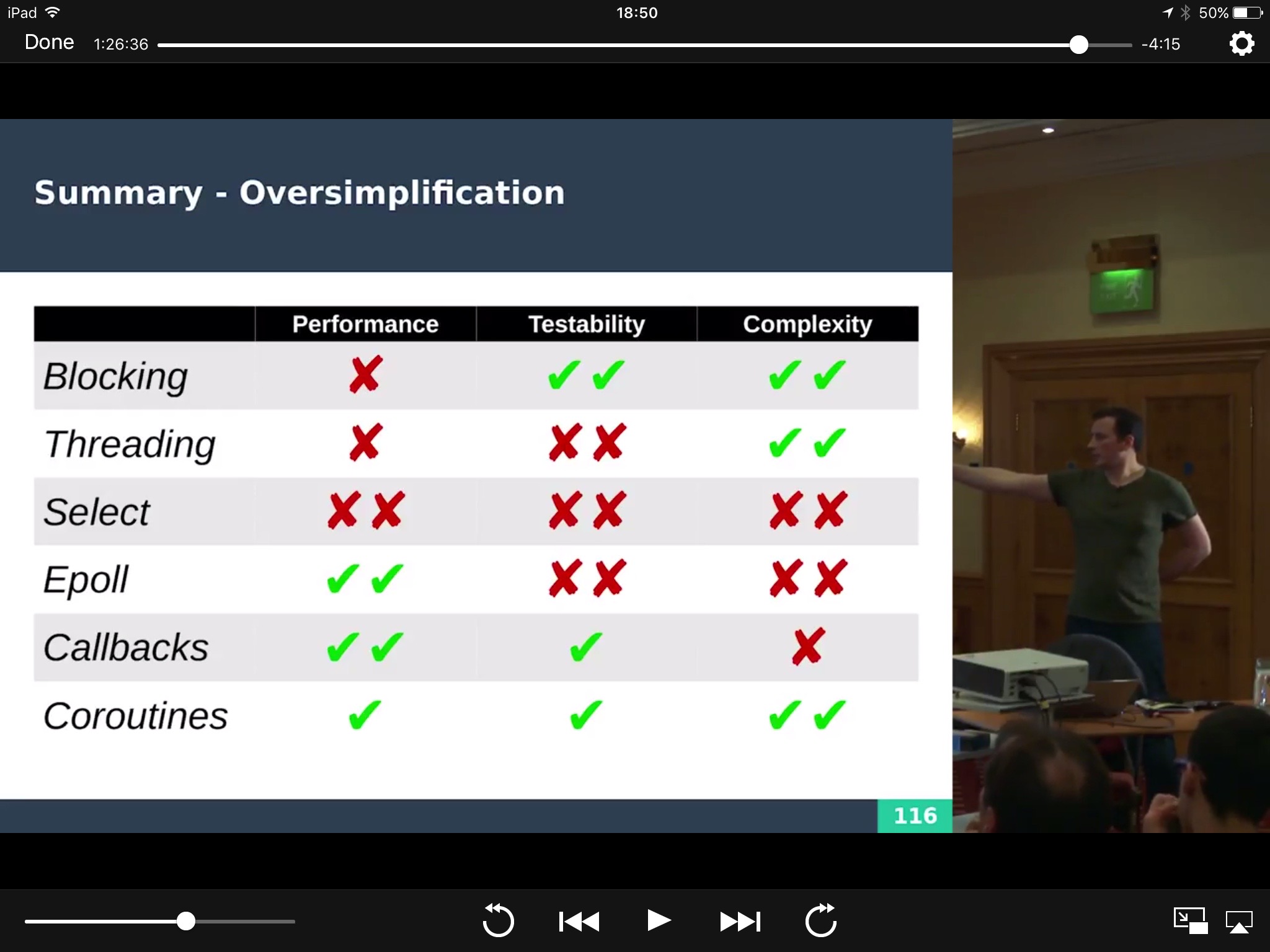
C++11 Multithreading done right? - Rainer Grimm @ Meeting C++ 2014
- discusses snippets of code, best practices, what not to do
- engages the audience (a bit too much IMHO) ⇒ lots of interruptions, sometimes they see his bugs and it all gets very confusing
- poor volunteer with the microphone running around like mad trying his best to catch random replies across the huge room
Why does C++ seem to be mentioned a lot in jobs related to video encoding or streaming?
- C++ is efficient, close to metal, you can do anything, and tooling is readily available
- Soft real-time constraints, speed is king
- Memory constraints for embedded encoders/decoders
- C++ toolchain permits optimisations that are simply not possible in other languages
- SIMD
Using C++ Resumable Functions with Libuv
- “Libuv is a C library that provides the asynchronous I/O in Node.js. While it was explicitly designed for use by Node.js, it can be used on its own and provides a common cross-platform API, abstracting away the various platform-specific asynchronous APIs.”
- “With resumable functions, you can write code that looks very sequential but executes asynchronously.”
- Header-only wrappers for the main lib functions
Using C++ Coroutines with Boost C++ Libraries
- Using coroutines with
boost::futureandboost::asio - Interesting techniques for adapting future/promise and callback-based APIs to using coroutines
- I expect more adaptations like this coming in the near future
- awaitable_tasks — for
boost::asio - a Gist by John Bandela — a much simpler version that relies on
boost::asiocapability to return a future instead of using a callback.
- awaitable_tasks — for
await/yield: C++ coroutines - Zbigniew Skowron
- Current status (as of 30 Nov 2016)
- Overview and motivation
- Stackful vs. stackless
- Coroutines as generators
- Coroutines instead of callbacks
- Awaitable types vs. coroutine return types
- Gotchas